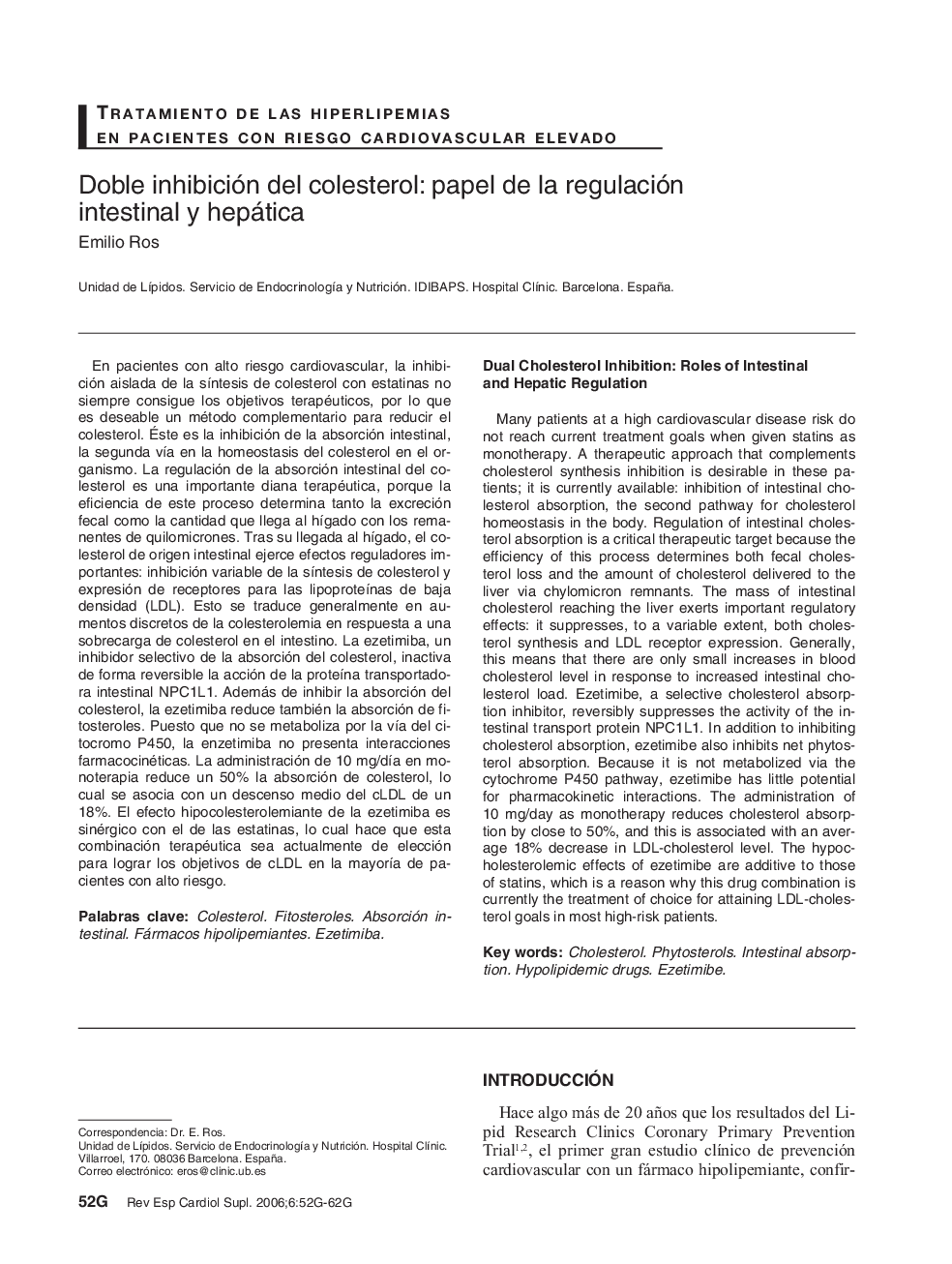| Article ID | Journal | Published Year | Pages | File Type |
|---|---|---|---|---|
| 3019826 | Revista Española de Cardiología Suplementos | 2006 | 11 Pages |
Abstract
Many patients at a high cardiovascular disease risk do not reach current treatment goals when given statins as monotherapy. A therapeutic approach that complements cholesterol synthesis inhibition is desirable in these patients; it is currently available: inhibition of intestinal cholesterol absorption, the second pathway for cholesterol homeostasis in the body. Regulation of intestinal cholesterol absorption is a critical therapeutic target because the efficiency of this process determines both fecal cholesterol loss and the amount of cholesterol delivered to the liver via chylomicron remnants. The mass of intestinal cholesterol reaching the liver exerts important regulatory effects: it suppresses, to a variable extent, both cholesterol synthesis and LDL receptor expression. Generally, this means that there are only small increases in blood cholesterol level in response to increased intestinal cholesterol load. Ezetimibe, a selective cholesterol absorption inhibitor, reversibly suppresses the activity of the intestinal transport protein NPC1L1. In addition to inhibiting cholesterol absorption, ezetimibe also inhibits net phytosterol absorption. Because it is not metabolized via the cytochrome P450 pathway, ezetimibe has little potential for pharmacokinetic interactions. The administration of 10 mg/day as monotherapy reduces cholesterol absorption by close to 50%, and this is associated with an average 18% decrease in LDL-cholesterol level. The hypocholesterolemic effects of ezetimibe are additive to those of statins, which is a reason why this drug combination is currently the treatment of choice for attaining LDL-cholesterol goals in most high-risk patients.
Keywords
Related Topics
Health Sciences
Medicine and Dentistry
Cardiology and Cardiovascular Medicine
Authors
Emilio Ros,
